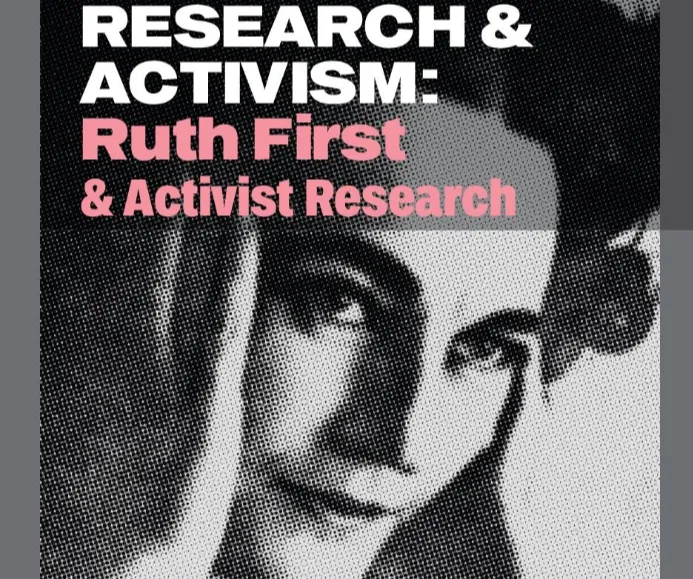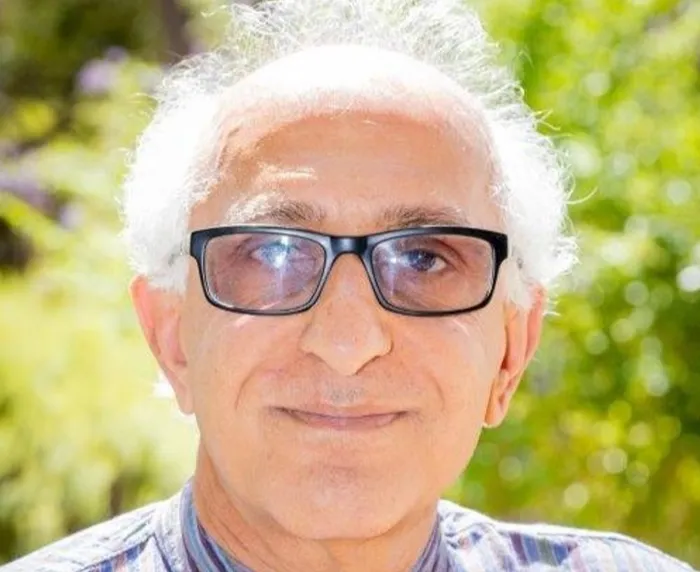The Ruth First Legacy
New book

The book cover
Image: Supplied
A MAJOR highway in Durban is named Ruth First, but who was she. First was a South African freedom fighter, journalist and scholar who worked against the racist system of apartheid during white minority rule. She was murdered by apartheid assassins in her office at the Eduardo Mondlane University in Maputo in 1982.
A new book, Research and Activism: Ruth First & Activist Research by Vasu Reddy and me ensures that her ideas, work and legacy live on. The book can be downloaded for free.
Heloise Ruth First was born on May 4, 1925, in Johannesburg to Jewish parents who migrated from Eastern Europe to South Africa in the early 1900s
Her parents were founder members of the South African Communist Party. Involved in the Young Communist League and the Federation of Progressive Students, at age 21, First joined The Guardian (later New Age) and served as its Johannesburg editor for 17 years.
Her brave and penetrating journalistic research exposed her to the brutality of labour exploitation and control on the mines and the farms.
First wrote that “silence in the face of injustice is complicity”.
For her, “the will to fight is born out of the desire for freedom”.
She was confident that “the power of the people is greater than the power of any government”.
She believed that “ignorance” is “the enemy of progress and justice” and knowledge and education are “key to empowering individuals and challenging oppressive systems”.
These words ring true in today’s South Africa and in the global context of right-wing authoritarianism, ruthless US imperialism and the complicity of many countries in genocide in Palestine.
The book revisits First’s work, ideas and life and offer new thinking about her. We expand and complicate our understanding of her legacies and invite more critical reflection about her life and work. Inspired by First’ work, it considers how universities and scholars connect with institutions and social movements beyond the university.
Scholars reflect on the work of the assassinated activist scholar Rick Turner (academic and anti-apartheid activist who was a lecturer at the then University of Natal, Durban), on climate change, and on the complexities of undertaking activist research in Marikana with a women’s organisation, Sikhala Sonke.
They critically examine the KwaZulu-Natal Society of the Arts and a University of Cape Town partnership between activist scholars and Khoi-San communities and reflect on the challenges of legal practice and education.
The book shows that there is a difference between engaged research, critical research and activist research.
Engaged research intentionally tries to connect knowledge produced by academics with institutions, movements and experts outside the university to collaboratively address issues and promote cooperation.
Critical research uses radical critical theory to critique oppression and injustice, to show the gap between what exists today and more egalitarian and just ways of living. However, it does not necessarily connect with political and social movements.
Ruth First’s research was not only engaged, but also critical in orientation and ‘activist’ in nature. As activist research it challenged oppression and inequality. It both critiqued the status quo and tried to change it. It was linked with movements and connected to political activism that was anticolonial, anti-imperialist, and committed to socialism.
First’s activist research did not confine itself to the academic arena but engaged with larger, wider and more diverse publics. It used this experience to critique dominant and often limited thinking at universities and promoted other ways of producing knowledge and looking at the world. The knowledge and expertise developed was used to improve scholarship in various ways.
Despite much talk about the ‘engaged university’ and engaged research, only certain connections and engagements seem to be valued.
Before 1994, researchers connected with social movements for change. This is seldom the case today. Universities and scholars largely engage with those with money – the state, business, elites and donors.
This raises the questions of the roles of researchers in South Africa, whose interests are prioritised and the place of critical and activist research in the engaged university.
We must honour Ruth First for her intellectual and practical activism. What matters is not just her knowledge archive, but also her example as both an outstanding interpreter of the world and an activist scholar committed to changing society in the interests of the downtrodden, marginalised and voiceless.
First’s daughter, author Gillian Slovo, describes her mother’s role in the liberation struggle as ‘Ruth the critic, the outsider who questioned orthodoxy’.
She was, however, an ‘insider outsider’. A critical and independent thinker who refused to accept anything as settled and beyond questioning, but that intellect was committed to the national liberation movement of which she was a loyal and invaluable cadre.
The Durban launch of the book will be at Ike’s Books on July 1 at 6pm. It can be downloaded for free at ESI Press website — https://doi.org/10.35293/esi.36

Professor Saleem Badat
Image: Supplied
Saleem Badat is Research Professor in the Department of History at the University of the Free State and the former vice-chancellor of Rhodes University.
Related Topics:
